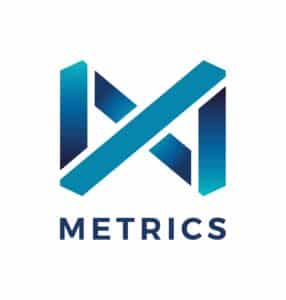Investing in private debt has gained wider popularity as its ability to provide capital stability and an attractive income stream fueled demand from financial advisers and their clients.
This broad acceptance of the asset class follows a decade in which the local industry proved it can deliver on its objective of providing investors with an alternative to the traditional income options of equities for dividends, investing in property, infrastructure, fixed income bonds or cash.
The basic premise behind private debt is now widely understood – it offers floating rate returns in excess of the RBA cash rate that protect investors against inflation. These returns are typically less volatile than the yield from equities or bonds, allowing advisers to add a new component to portfolios for extra diversification.
Metrics Credit Partners’ (Metrics) retail funds, for example, offer target returns ranging from the RBA Cash Rate + 3.25% per annum to a total target return of 9% per annum to 11% per annum (net of fees).
It generates these returns by providing loans to business borrowers who require capital. The income paid to investors is generated from the interest and fees paid by the borrowers, minus fund costs.
Below are some of the most frequently asked questions about private debt from advisers.
Who are your borrowers and how do you choose them?
Most private debt managers have a focus on providing loans to medium to large companies or projects with an established financial history and market position. This strategy assists in moderating credit losses over time.
Australia’s corporate loan markets can be split broadly into four segments. At various times, each of these segments may offer better risk-adjusted returns and therefore better lending opportunities than others.
1. Property loans: Typical borrowers include companies involved in the development, ownership or management of office, industrial, retail or residential property. Loans can be used for different stages of a property project – including land purchase, pre-construction activities, construction or residual stock.
The Australian market in real estate debt is significant in size but avenues for retail investors to build an exposure to it were previously limited. This is because major banks dominate lending to the sector, with other lenders accounting for a much smaller proportion of activity.
Regulatory reform designed to reduce banks’ exposure to property following the global financial crisis has since facilitated the launch of more funds which invest in real estate, including those which are open to retail clients.
2. Corporate lending: Corporate loans are the most common form of loan product for companies outside large ASX-listed entities. Lending to the latter is dominated by the banks, so mid-market lending provides greater opportunities for private debt managers to structure loans with an attractive risk/return proposition. Borrowers in this sector are diversified across all industry groups represented in the economy.
3. Leveraged and acquisition loans: These loans can take two generic forms depending on whether the acquirer of the company is an existing business with its own cash flows and assets, or a special purpose vehicle created and capitalised for the purpose of an acquisition. These facilities are structured around debt serviceability and security.
4. Project and infrastructure finance loans: These loans can be structured for greenfield projects that comprise two elements: an initial cash-spend construction phase; and then a cash-generating operations phase upon completion. Loans can also be structured for projects that are already built – or ‘brownfield’ projects. Funding of public private partnerships has been an important contributor to this segment in recent years. Types of borrowers in this sector include transport and services.
I know floating rates rise with inflation, but what is the benefit of private debt when rates fall?
It’s true private debt offers protection against inflation – mainly because the loans in a portfolio generally have floating interest rates. The interest on Australian corporate loans is usually structured as an additional margin over the benchmark Bank Bill Swap Rate (BBSW), which is correlated with the Reserve Bank of Australia’s official cash rate.
In this way, private debt keeps paces with inflation to help investors maintain their purchasing power even as prices of goods and services rise.
But the additional margin over BBSW still applies when interest rates drop, allowing private debt to maintain the premium it can offer versus other income-producing assets.
Another key attraction of the asset class is that it aims to provide capital stability throughout the economic cycle – making it a suitable component of long-term asset allocation.
This is an advantage in an environment where fixed income investments don’t always deliver the safe haven and downside protection they once did. Fixed rate bonds do not always rise in price as equities fall, so private debt offers an alternative ballast for portfolios.
How can private debt be used as part of an investor’s overall asset allocation?
Private debt is a versatile investment that can work in either the defensive or growth component of a portfolio – and sometimes even both at the same time.
Private debt funds which hold relatively low risk positions in senior secured or investment grade debt may be suitable for defensive investors seeking an alternative to the traditional bonds . This style of conversative investment may have particular appeal in a rising rate environment as fixed rate bonds typically incur losses as interest rates move higher.
Alternatively, funds which provide exposure to sub-investment grade debt or alternative parts of the capital structure – such as mezzanine or subordinated debt – can instead replace part of an investor’s allocation to equities. This category of holding produces a similar return to equities but carries less risk due to its position in the capital structure. It can thus appeal to people who are uncomfortable with the volatility of the share market by offering a source of more predictable returns.
More conservative private debt funds can deliver a return of around 8 per cent to 9 per cent, an attractive alternative to low yielding corporate bonds, hybrids, government bonds or even cash deposits. A higher yielding fund can deliver a cash distribution of around 11 per cent to 13 per cent, a favourable alternative to investing in equities for income.
How can retail investors access private debt?
One of the best ways for investors to access corporate loans is through a low-cost and diversified fund. Both listed and unlisted products are on offer.
Listed funds offer daily liquidity via on-market trading on the ASX but are exposed to market volatility. Unlisted funds, on the other hand, are not exposed to the daily volatility of the share market but may only allow monthly, or quarterly, redemptions.
It is important to invest with a manager who has the necessary skills and experience to take the steps needed to preserve investor capital and negotiate appropriate pricing with the borrower to deliver optimal returns for investors. When choosing a fund manager, advisers should consider:
- Size and scale: Fund managers need a sizeable team, breadth of market coverage and borrower relationships to achieve proper diversification in private debt portfolios. The ability to lend larger sums also provides greater negotiating power in relation to loan terms and conditions.
- Origination capability: Check the manager has direct relationships with borrowers and other market participants to directly negotiate loan terms.
- Risk management capability: A strong focus on risk management and experience in loan restructuring in the event of a default is essential to preserve investor capital.
- Track record of performance: Seek evidence that a manager has delivered capital stability and regular income payments to investors. It should also be able to demonstrate that it has met stated investment targets over time.
- Diversification: Managers should maintain diversified portfolios to help spread risk across sectors. Investors should look for portfolios that are diversified across borrowers and ensure the exposure to any individual borrower does not expose their capital to inappropriate concentration of credit risk.
- Appropriate terms: When negotiating a transaction with a borrower, a fund manager must ensure that appropriate terms and conditions apply to the loan. It must also put in place controls that put constraints on the borrower and therefore protect investor capital.
Metrics itself has more than $17 billion in funds under management from institutions, financial advisors, and individuals. It launched its first wholesale fund in 2013 and later pioneered public market access to private debt in Australia. Its team of in excess of 140 investment professionals has the necessary credit skills and depth of experience to meet its funds’ objectives.
What support is available for advisers seeking to use private debt in client portfolios?
A growing number of resources are available for advisers seeking to better understand private debt and incorporate it in portfolios, including videos produced by fund managers such as Metrics and educational material that offers continual professional development points for advisers.
Metrics also has a large, discrete investor relations team and works closely with its domestic distribution partner, Pinnacle Investment Management (Pinnacle), to service stakeholders across the retail, wholesale and institutional sectors.
Metrics conducted close to 800 meetings with representatives from those sectors in the year to February 2024, providing educational decks to supplement the information provided during those meetings.
Pinnacle undertakes additional briefings as part of its own schedule of activities, and co-hosts events with Metrics. These briefings aim to equip advisers with the necessary knowledge and skills to use private debt to the maximum advantage of their end clients.
A word from Metrics Credit Partners
Metrics is a leading Australian non-bank lender and alternative asset manager with in excess of $17 billion in assets under management. We are the connecting point between the needs of investors and the needs of companies seeking private finance. Through our range of innovative private investment solutions, we pursue maximised, risk-adjusted returns, responsibly.
We launched our first wholesale fund in 2013 and later pioneered public market access to private debt in Australia. Our retail products include the Metrics Master Income Trust (MXT) and the Metrics Income Opportunities Trust (MOT) which are both listed on the ASX. We also offer an unlisted unit trust for investors looking to avoid exposure to potential volatility of public market trading on the ASX – the Metrics Direct Income Fund (MDIF). Our private debt portfolio’s are diversified across industries, sectors, and credit quality to increase return stability and reduce concentration risk.
MXT and MDIF have obtained the highest research ratings from Lonsec, Zenith Investment Partners and Bond Advisor who each rated the Fund’s ‘Highly Recommended’ while Metrics Income Opportunities Trust (MOT) is rated ‘Recommended’.
Metrics 10-year track record of performance and capital preservation* is underpinned by a team of more than 140 investment professionals comprised of the four founding partners and supported by a team of highly qualified investment specialists with skills and experience covering origination, credit and financial analysis, portfolio risk management, legal and fund administration.
*Past performance is not a reliable indicator of future performance.
Disclaimer
The Trust Company (RE Services) Limited (ABN 45 003 278 831, AFSL 235 150) is the Responsible Entity of the Metrics Master Income Trust and Metrics Income Opportunities Trust (the Trusts). Equity Trustees Limited (ACN 004 031 298, AFSL 240 975) is the Responsible Entity of the Metrics Direct Income Fund (the Fund). Equity Trustees is a subsidiary of EQT Holdings Limited ABN 22 607 797 615, a publicly listed company on the Australian Securities Exchange (ASX: EQT).
This content has been prepared by Metrics Credit Partners Pty Ltd ABN 27 150 646 996 AFSL 416 146 (Metrics), the investment manager of the Trusts and Fund. A person should consider the PDS and TMD before deciding whether to acquire, dispose of, or continue to hold, units in the Trust. For further information on the Trusts and Fund, please refer to the relevant PDS and Target Market Determination available at metrics.com.au.
Content in respect of the Metrics Master Income Trust and Metrics Income Opportunities Trust is issued by The Trust Company (RE Services) Limited. Content in respect of Metrics Direct Income Fund is issued by Equity Trustees Limited. It has been prepared to provide you with general information only. In preparing this information, The Trust Company (RE Services) Limited and Equity Trustees did not take into account the investment objectives, financial situation or particular needs of any particular person. It is not intended to take the place of professional advice and you should not take action on specific issues in reliance on this information. Neither The Trust Company, Equity Trustees, Metrics nor any of their related parties, their employees or directors, provide any warranty of currency, accuracy, completeness or reliability in relation to such information or accept any liability to any person who relies on it. Neither The Trust Company, Equity Trustees nor Metrics guarantees repayment of capital or any particular rate of return from the Fund. Always consult a licensed and trustworthy professional before making a financial, taxation or legal decision.
Ratings Disclaimer
Zenith Investment Partners
The Zenith Investment Partners (ABN 27 103 132 672, AFS Licence 226872) (“Zenith”) ratings (assigned to Metrics Direct Income Fund (EVO2608AU), Metrics Master Income Trust (ASX:MXT), Metrics Income Opportunities Trust (ASX: MOT), referred to in this communication are limited to “General Advice” (s766B Corporations Act 2001) for Wholesale clients only. This advice has been prepared without taking into account the objectives, financial situation or needs of any individual, including target markets of financial products, where applicable, and is subject to change at any time without prior notice. It is not a specific recommendation to purchase, sell or hold the relevant product(s). Investors should seek independent financial advice before making an investment decision and should consider the appropriateness of this advice in light of their own objectives, financial situation and needs. Investors should obtain a copy of, and consider the PDS or offer document before making any decision and refer to the full Zenith Product Assessment available on the Zenith website. Past performance is not an indication of future performance. Zenith usually charges the product issuer, fund manager or related party to conduct Product Assessments. Full details regarding Zenith’s methodology, ratings definitions and regulatory compliance are available on our Product Assessments and at Fund Research Regulatory Guidelines.
BondAdviser
BondAdviser has acted on information provided to it and our research is subject to change based on legal offering documents. This research is for informational purposes only. This information discusses general market activity, industry or sector trends, or other broad-based economic, market or political conditions and should not be construed as research or investment advice.
The content of this report is not intended to provide financial product advice and must not be relied upon or construed as such. The statements and/or recommendations contained in this report are our opinions only. We do not express any opinion on the future or expected value of any Security and do not explicitly or implicitly recommend or suggest an investment strategy of any kind.
This report has been prepared based on available data to which we have access. Neither the accuracy of that data nor the research methodology used to produce the report can be guaranteed or warranted. Some of the research used to create the content is based on past performance. Past performance is not an indicator of future performance. We have taken all reasonable steps to ensure that any opinion or recommendation contained in the report is based on reasonable grounds. The data generated by the research is based on methodology that has limitations; and some of the information in the reports is based on information from third parties.
We do not therefore guarantee the currency of the report. If you would like to assess the currency, you should compare the report with more recent characteristics and performance of the assets mentioned within it. You acknowledge that investment can give rise to substantial risk and a product mentioned in the reports may not be suitable to you.
You should obtain independent advice specific to your particular circumstances, make your own enquiries and satisfy yourself before you make any investment decisions or use the report for any purpose. This report provides general information only. There has been no regard whatsoever to your own personal or business needs, your individual circumstances, your own financial position or investment objectives in preparing the information.
We do not accept responsibility for any loss or damage, howsoever caused (including through negligence), which you may directly or indirectly suffer in connection with your use of this report, nor do we accept any responsibility for any such loss arising out of your use of, or reliance on, information contained in or accessed through this report.
© 2024 Bond Adviser Pty Limited. All rights reserved.
Lonsec
The ratings issued 08/2023 (assigned to Metrics Direct Income Fund, Metrics Master Income Trust and Metrics Income Opportunities Trust) are published by Lonsec Research Pty Ltd ABN 11 151 658 561 AFSL 421 445 (Lonsec). Ratings are general advice only, and have been prepared without taking account of your objectives, financial situation or needs. Consider your personal circumstances, read the product disclosure statement and seek independent financial advice before investing. The rating is not a recommendation to purchase, sell or hold any product. Past performance information is not indicative of future performance. Ratings are subject to change without notice and Lonsec assumes no obligation to update. Lonsec uses objective criteria and receives a fee from the Fund Manager. Visit lonsec.com.au for ratings information and to access the full report. © 2024 Lonsec. All rights reserved.





